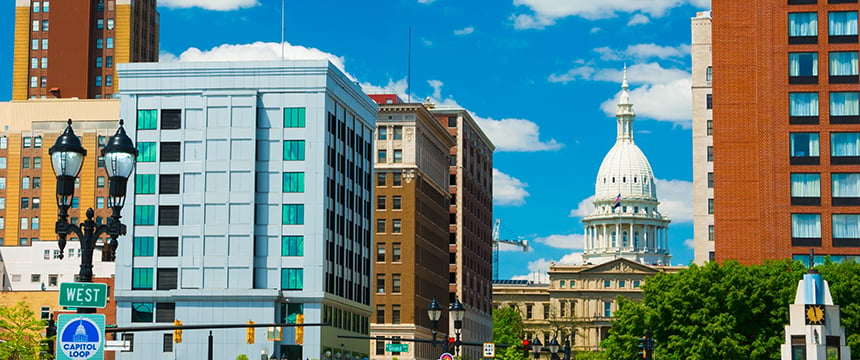Revised Michigan COVID-19 Health Order Extends Business, Gathering Restrictions through December 20, 2020 – Updated December 7, 2020

On Monday December 7, Governor Gretchen Whitmer and Michigan Department of Health and Human Services (“MDHHS”) Director Robert Gordon announced a twelve-day extension to the state health department’s COVID-19 restrictions and safety protocols. The previous November 16 MDHHS order (described in detail below) was set to expire at midnight on December 8. Under the revised December 7 Order (the “Revised Order”), protocols will continue through at least midnight on December 20.
Many of the requirements under the Revised Order mirror those of the earlier November 16th order. Under the Revised Order, individuals are still required to adhere to an indoor gathering limit of no more than 10 people from no more than two households, as well as outdoor gathering limits of 25 people. Face masks must also be worn by all persons participating in a gathering. While the Revised Order does not contain a blanket “Stay at Home” requirement, it does still require remote work whenever possible pursuant to the October 14 MIOSHA Emergency Rules.
In addition, the Revised Order requires casinos, movie theaters and group exercise classes to remain closed. Colleges, universities and high schools must also continue with remote learning, with no in-person classes. The Revised Order will mean that in-person learning for high school students is put on hold until at least January, because most school districts start their two-week winter break December 21. Professional and college sports meeting extraordinary standards for risk mitigation may continue without spectators, and gyms may open for individual exercise only with mandatory masking and additional strict safety measures. Similarly, bars and restaurants must remain closed for indoor service.
One of the most significant changes to the Revised Order is a new definition for “Indoors.” Under the Revised Order, “Indoors” is defined as a space that is fully or partially enclosed on the top, and fully or partially enclosed on two or more contiguous sides. Additionally, in a space that is fully or partially enclosed on the top, and fully or partially enclosed on two non-contiguous sides, any part of that space that is more than eight feet from an open side is defined as “Indoors.” This latest change may be aimed at stemming indoor gathering work-around techniques, such as tents and plastic “igloos” used by bars and restaurants to continue on-site services.
The revised “Indoors” definition comes just five days after U.S. District Judge Paul Maloney denied a request from the Michigan Restaurant & Lodging Association for a preliminary injunction to overturn the ban on indoor dining. In the District Court opinion upholding the MDHHS order, Judge Maloney stated that there was, “ … a plausible explanation for the emergency order”. Governor Whitmer and MDHHS Director Gordon reiterated the importance of closing bars and restaurants in a December 7 press conference announcing the Revised Order, and provided further explanation for the decision in the form of academic studies and empirical instances of transmission in restaurant settings.
In the same press conference, Governor Whitmer also announced the metrics which will be used to decide where and when activities may resume. These key metrics require (i) a decreasing percentage of hospital beds with COVID-19 patients, (ii) a decrease in overall COVD-19 cases measured in the population, and (iii) a decrease in the percentage of COVID-19 tests that return a positive result, in order for new sectors of the economy to be re-opened. “Hope is on the horizon, but we need an additional 12 days to determine the full impact of the Thanksgiving holiday on our efforts to mitigate the spread of the virus,” said Governor Whitmer. “This is all about protecting our families and frontline workers until we eradicate this virus once and for all. With recent daily case counts averaging well above 6,000, the daily death toll at alarming levels and the risk of hospitals becoming overwhelmed, we must work together as Michiganders and listen to our health experts. This may be the most difficult time yet in our struggle with COVID-19, but there is light at the end of the tunnel.”
Update – November 16, 2020
On Sunday November 15th, Michigan Governor Gretchen Whitmer announced an extensive set of new restrictions aimed at slowing the spread of COVID-19 in the state. The Gatherings and Face Mask Order (the “Order”), issued by Michigan Department of Health and Human Services (“MDHHS”), reinstates numerous protocols first implemented by the Governor through executive order earlier in the year. The order takes effect at 12:00 a.m. Wednesday, November 18th and remains in force through December 8th.
In her Sunday evening press conference, Governor Whitmer stressed that the Order was being implemented in hopes of avoiding more restrictive “Stay at Home” orders like those issued throughout the spring. Nonetheless, with a record 8,516 new in-state cases identified on November 13th and over 3,000 Michiganders currently hospitalized, the Order contains some of the most restrictive provisions seen in months. Under the Order:
- Face masks must continue to be worn in public and at all gatherings;
- Employers, including those in manufacturing, must continue to adhere to the MIOSHA workplace safety requirements, which apply to workplace gatherings (including in-person work), issued on October 14, 2020; MIOSHA has announced stepped up enforcement (described below); the MIOSHA requirements state that in-person work is prohibited to the extent the work can “feasibly” be completed remotely, which is generally interpreted as requiring employees to work remotely unless it is impossible to perform the work remotely;
- High schools, colleges, and universities must move to distance learning (middle and elementary schools may continue ongoing in-person learning operations);
- Indoor gatherings are limited to 10 people from no more than two households;
- Outdoor gatherings and funerals are limited to no more than 25 people;
- Businesses must deny entry or service to all persons refusing to wear face masks while gathered (subject to a number of exceptions);
- Theaters, moving theaters, stadiums, arcades, bowling centers, ice skating rinks and indoor water parks must be closed;
- Group fitness classes are prohibited;
- Exercise facilities, personal care businesses, and businesses that provide in-home services must maintain records of patrons’ names, date and time of entry, and contact information to aid with COVID-19 contact tracing; and
- Retail stores, libraries, and museums must not exceed 30% of total occupancy limits, and exercise facilities must not exceed 25% of a total occupancy limit established by the State or local fire marshal.
The Order replaces an earlier October 29th MDHHS order containing less-restrictive gathering prohibitions, face covering requirements, and reporting protocols for confirmed and probable COVID-19 cases at schools. As with the earlier October 29th order, non-compliance with the Order is punishable by a fine of up to $1000 for each violation or day that a violation continues.
On Monday, November 16, 2020 MIOSHA further clarified in a Webinar and Q&A event that it intends to perform random pro-active inspections with an emphasis on office settings. Upon inspection, the MIOSHA investigator will require companies to provide their written COVID preparedness and response plan which must include an analysis of any positions that perform work in person, and a justification for the in-person work.
The Order also contains an extensive explanation of the statutory authority under which MDHHS is authorized to issue pandemic directives. In the past several weeks a number of lawsuits have been filed alleging that MDHHS orders constitute government overreach – similar to the Governor’s executive orders invalidated by the Michigan Supreme Court in October. In issuing its recent orders, MDHHS is relying on different statutory authority than that relied upon by the Governor for issuing executive orders earlier in the year. Under the Michigan Public Health Code (MCL 333.1291 et. seq.) enacted following the 1918 Spanish Flu Pandemic, MDHHS is statutorily authorized to “prohibit the gathering of people” and “establish procedures” during a pandemic or similar public health emergency. More broadly, under MCL 333.2226(d), MDHHS may “[e]xercise authority and promulgate rules to safeguard properly the public health; to prevent the spread of diseases and the existence of sources of contamination; and to implement and carry out the powers and duties vested by law in the department.” Regardless, it would not be surprising to see litigation filed challenging this exercise of authority by the MDHHS, in light of the Supreme Court’s recently articulated views on delegation of authority.
Companies in all sectors of the economy continue to be impacted by COVID-19. Foley is here to help our clients effectively address the short- and long-term impacts on their business interests, operations, and objectives. Foley provides insights and strategies across multiple industries and disciplines to deliver timely perspectives on the wide range of legal and business challenges that companies face conducting business while dealing with the impact of the coronavirus. Click here to stay up to date and ahead of the curve with our key publications addressing today’s challenges and tomorrow’s opportunities. To receive this content directly in your inbox, click here and submit the form.



